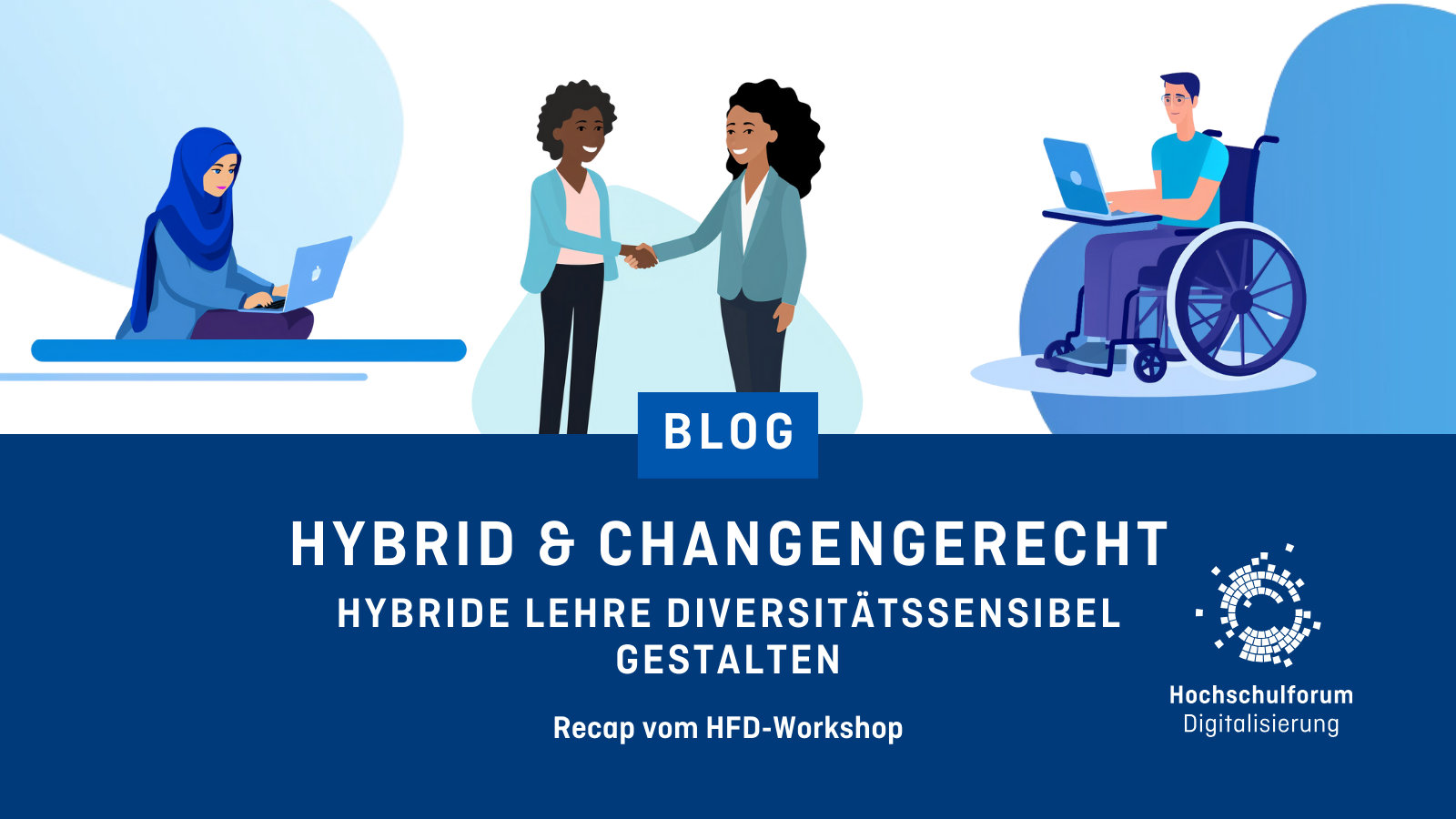Welcome to the HFD Summer School 2019
Welcome to the HFD Summer School 2019
16.09.19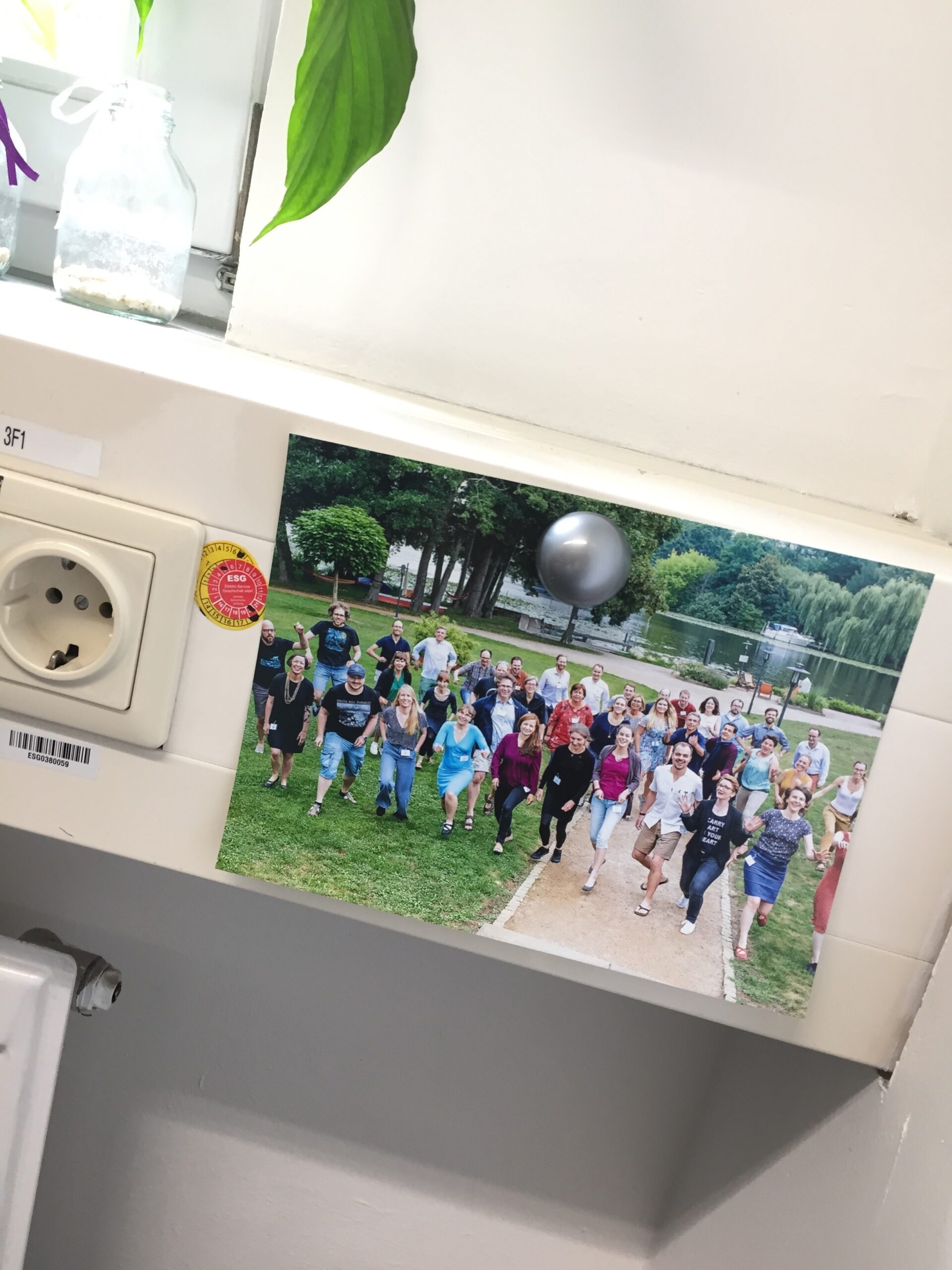
From 29 to 31 July 2019, a total of 31 participants* from the fields of teaching, media and didactics met at the Akademie Berlin-Schmöckwitz for the Summer School 2019 of the Hochschulforum Digitalisierung under the motto “Shaping Higher Education Teaching Together in the Digital Age”. The map of Germany shows it: Representatives* of universities from many parts of the Federal Republic of Germany were there to discuss and work together.
This article was automatically translated using DeepL Translator. Please excuse any errors.
The venue was located in the southernmost corner of Berlin. The conference venue Berlin-Schmöckwitz is a former, idyllically secluded fishing village and was therefore perfectly suited for intensive and group-oriented work without any distractions – apart from the swarms of mosquitoes that accompanied us from the early evening onwards. The sessions, working groups, theme tables and bar camps took place in the open air or in the conference rooms of the Akademie Schmöckwitz.
The aim of the event was expressed in the following words beforehand: The aim is to exchange experiences about the digitisation of teaching and learning in universities in interactive formats in order to explore how this can be designed and promoted. Ahead of the pack: The goal has been achieved!
The Summer School was organised and hosted by the Netzwerk für die Hochschullehre. Our thanks as participants go to all the committed participants for this well coordinated conference in the best atmosphere; especially to the members of the core team in the network for university teaching: PD Dr. Markus Deimann (FernUniversität Hagen), Karoline von Köckritz, (CeDiS, FU Berlin) and PD Dr. Malte Persike (CLS, RWTH Aachen) for their participation in the conception of the HFD Summer School.
Zurück zum Start!
Arrived! There we were. At the place where this year’s HFD Summer School took place (also called “Tropical Summer School” because of the summer heat). And despite an outside temperature of 30 °C and a 7-hour sweaty journey from the Ruhr to the outer corner of Berlin, two or three minutes on foot from Brandenburg, the very first sight of the beautiful conference house directly on the lake compensated for the “travel strain”.
At noon the registration of the participants took place; we were equipped with name tags, a bag with program documents and pinted our portrait on a map of Germany to get an overview of the regional distribution of all participants. After a subsequent creative round of introductions, we were presented with the agenda for the next three days. The daily planning was extremely varied and creative in content and choice of methods. There were organized, scheduled units in which a total of four theme workshops took place and twelve so-called Lightning Talks (or Pecha Kucha lectures) were presented. There were freely organisable units in which groups of four people each discussed and dealt with cases brought along by the participants within the framework of the collegial consultation. In between, there was space and time on all three days for the spontaneous organisation and realisation of theme tables at lunch or BarCamp sessions on topics as diverse as Twitter in the university context, podcasting, game based learning or agile work.
The HFD invited us to Mattermost during the entire Summer School – as well as for preparation in advance and for further communication in the aftermath. This is a communication platform on which you can exchange information about digital teaching and learning with currently more than 1000 interested people from different universities. In the private chat group “Summer School 2019” all participants* as well as the organisation team were represented and it was possible to send further information, links, posts etc. to the group at any time.
More information about the individual formats
Lightning-Talks (Pecha Kucha-Lectures)
There is no such thing as a form of Lightning talk. Many now use the term synonymously with the Pecha Kucha format, in which it is specified that 20 slides are faded in for exactly 20 seconds each and the respective presentation is therefore exactly six minutes and 40 seconds long.
License note: Collegial advice. Author: Hochschulforum Digitalisierung. Published under license CC BY-SA. (creativecommons.org/licenses/by-sa/4.0)
This format has been slightly modified for the Summer School: A five-minute lightning talk with 15 slides of 20 seconds each. After the talks, the audience* had 60 seconds to address their questions, comments or praise to the presenters using the interactive Q&A platform Pigeonhole Live.
Collegial advice
Collegial counselling is a method in which equal people support each other in solving concrete problems or questions – in collegial counselling cases are spoken of. Ideally, collegial counselling takes place “in a triangle”: a case giver*in brings a case to the collegial counselling, at least one counsellor*in brings proposals for solutions and new perspectives, a moderator*in shapes the situation in terms of time, documents keywords and, if necessary, asks the case giver*in or moderator*in. Of course, the moderator*in can also take part in an advisory capacity. The roles are redistributed for each collegial consultation, so that everyone has the chance to change to the role of case giver.
Collegial counselling is primarily about supporting the case givers by presenting new ideas or options for action or also about a new way of looking at a particular problem or challenge. At the same time, the collegial advisors also receive suggestions for their own questions.
License note: Collegial counselling. Author: Hochschulforum Digitalisierung. Published under licence CC BY-SA. (creativecommons.org/licenses/by-sa/4.0)
BarCamps
A BarCamp (often also called an unconference or ad-hoc non-conference) is an open, little to not at all pre-planned conference or event with open sessions, the contents and course of which are spontaneously developed by the participants themselves at the beginning of the event and then arranged in the further course. With the BarCamp method, the participants (in the case of the BarCamp, often participants) can actively participate in the event and creatively shape it from start to finish.
The Summer School is over – and what remains?
The Summer School ended on Wednesday, 31 July at 16:00 in the joint plenary session with a review and feedback rounds. After very intensive and eventful days it was time to start the journey home and to carry the positive and creative energy of the conference into the own team at the university. In addition to numerous suggestions, ideas and impulses, we from Bochum also got around with extremely tangible things. For example, the cooperation in a working group, blog cooperations and many new contacts, which network our own work throughout Germany.
We also remember the unique atmosphere between the participants, who formed a team out of 31 individuals in a very short time – trusting and committed.
And what remains: Not only (but also!) a joint Summer School photo in the home office!
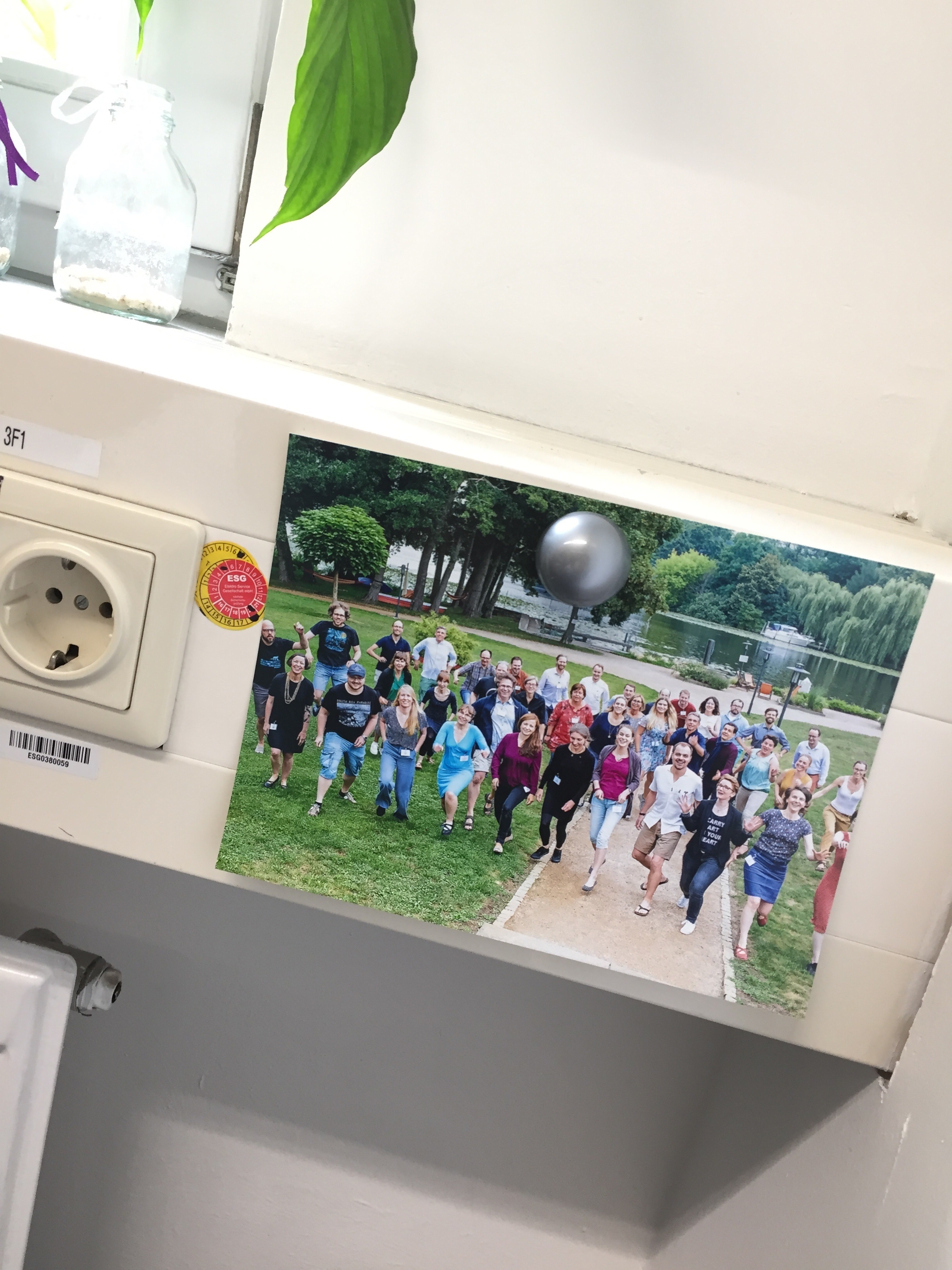

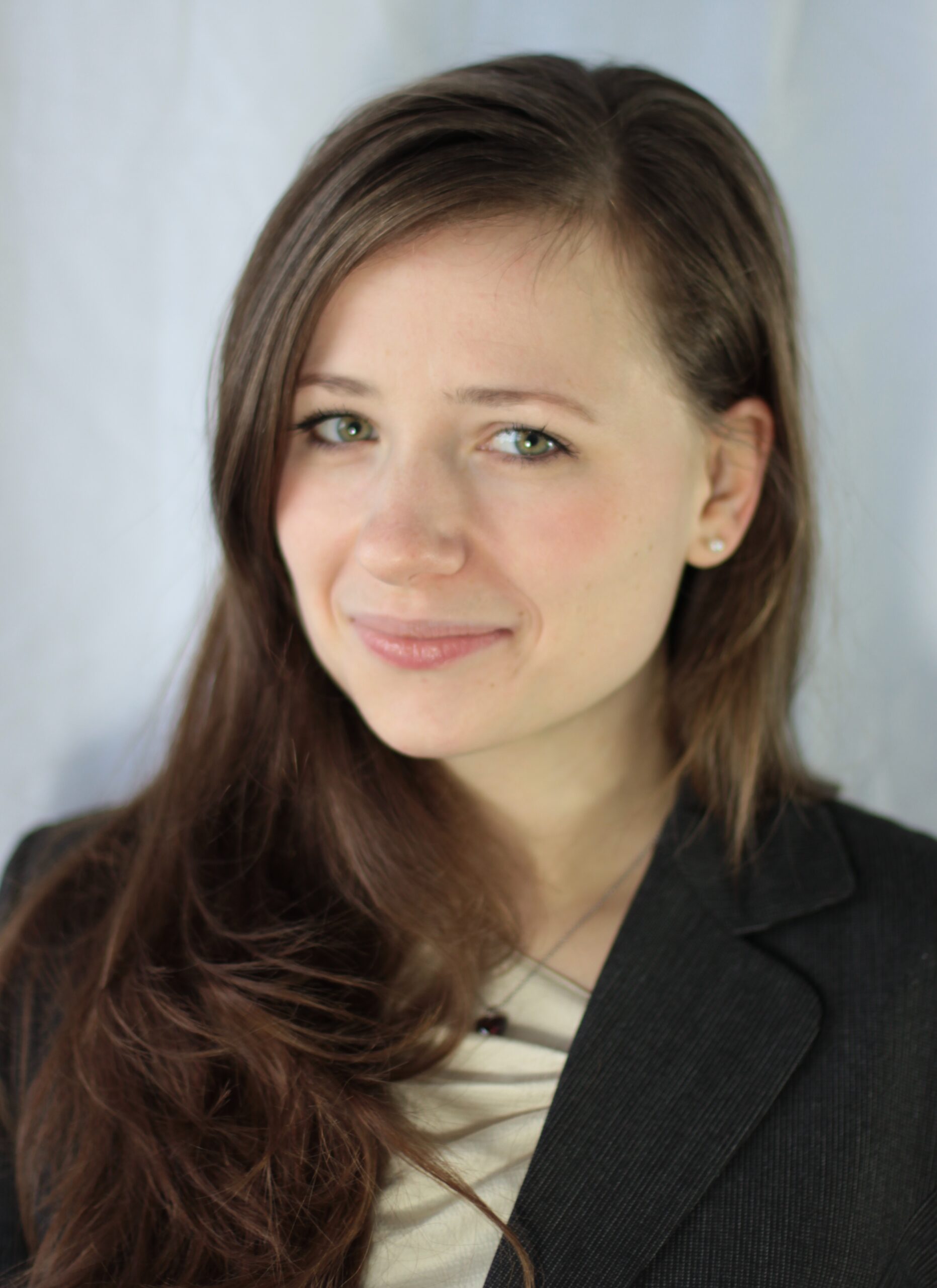
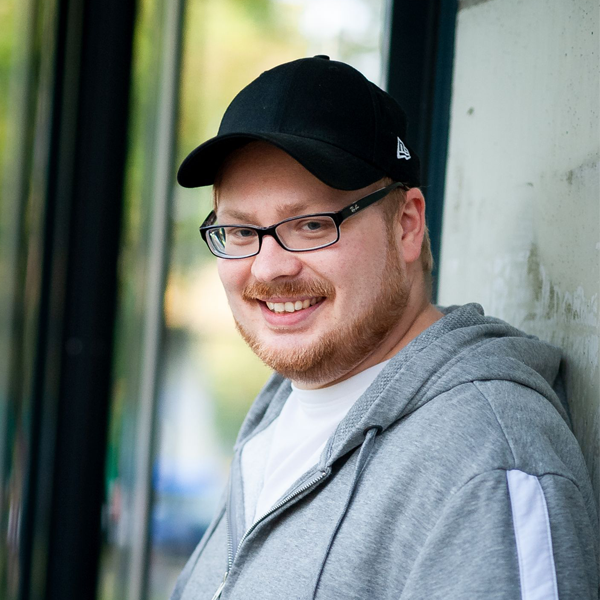
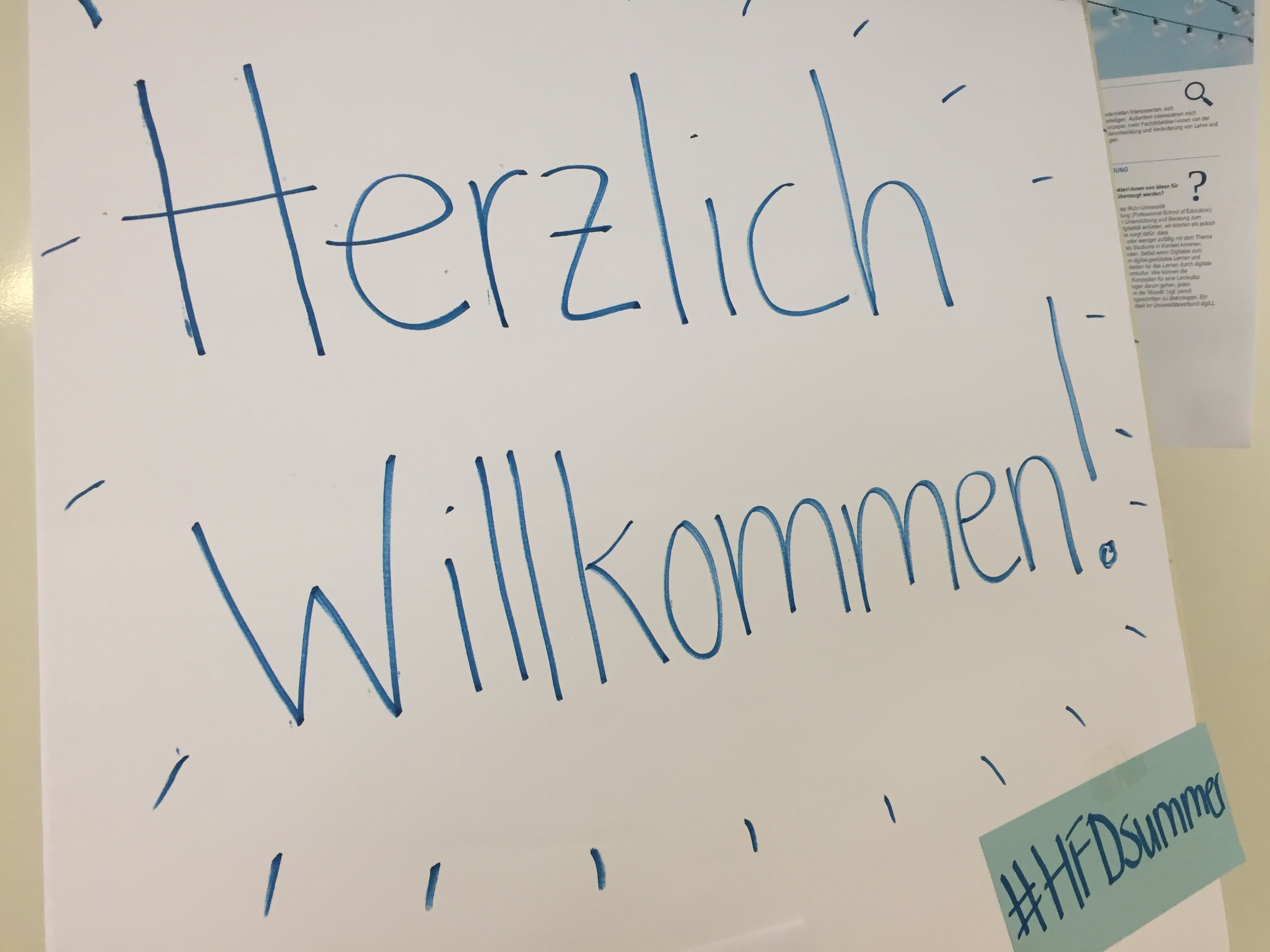
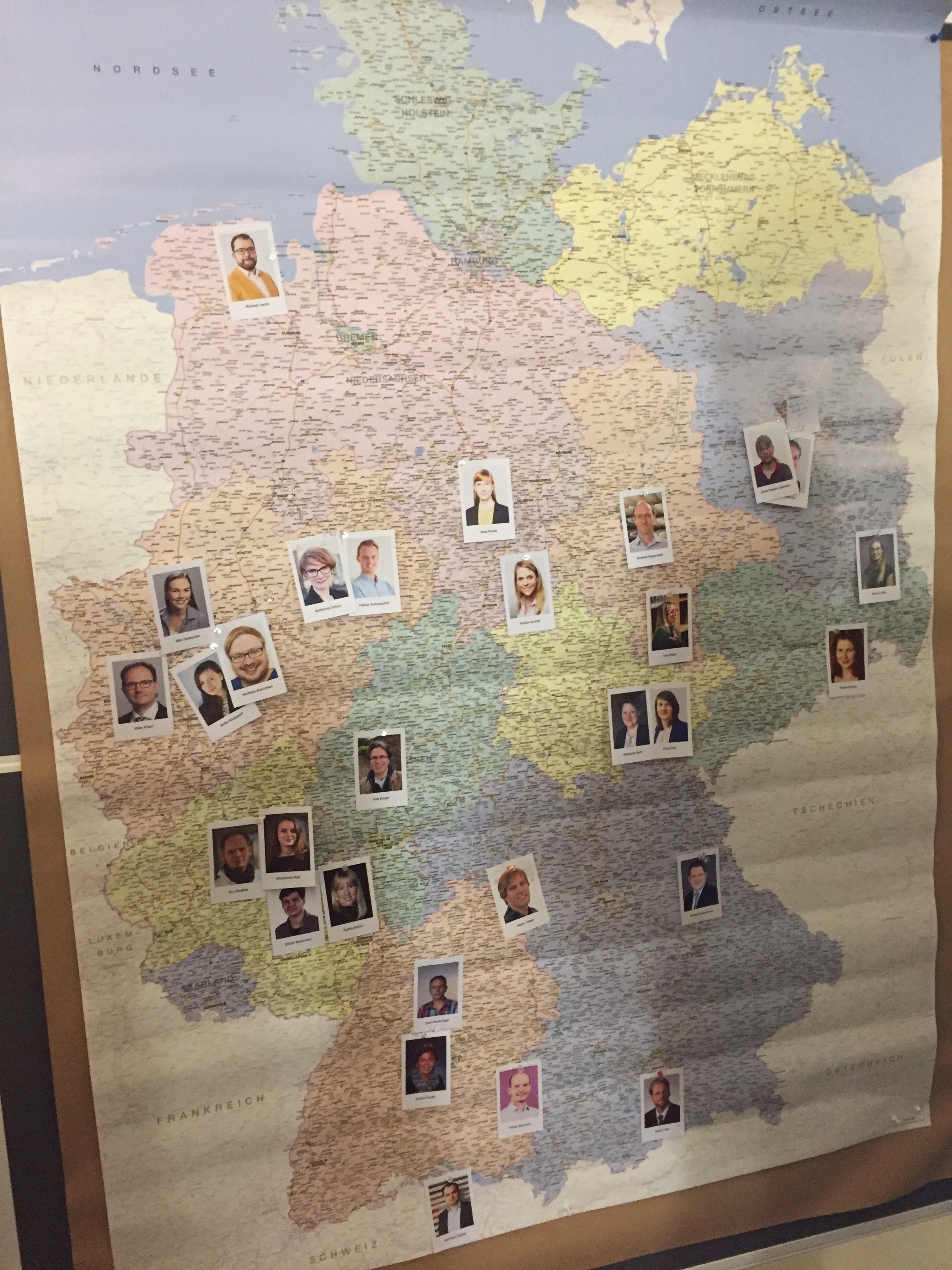
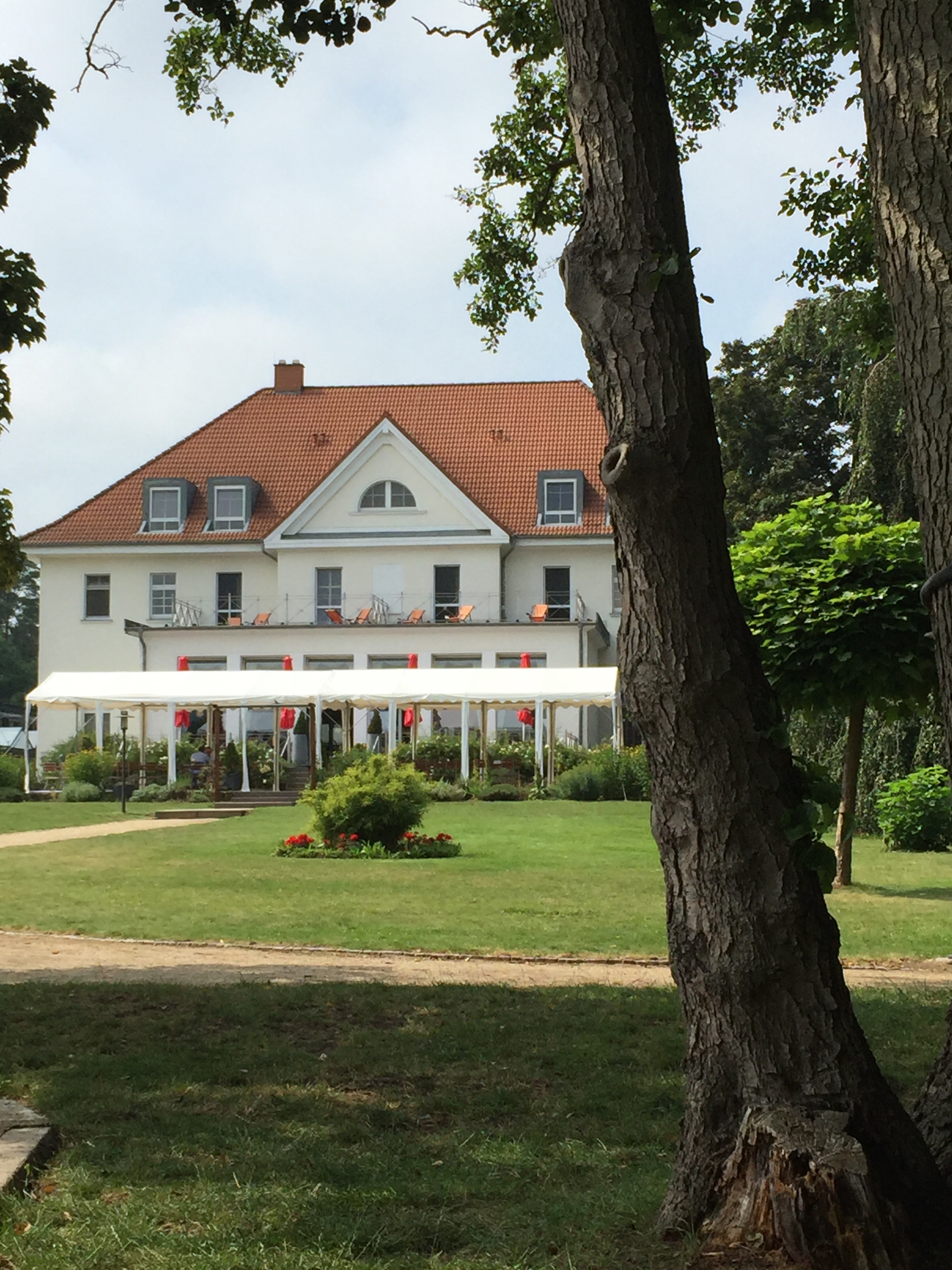
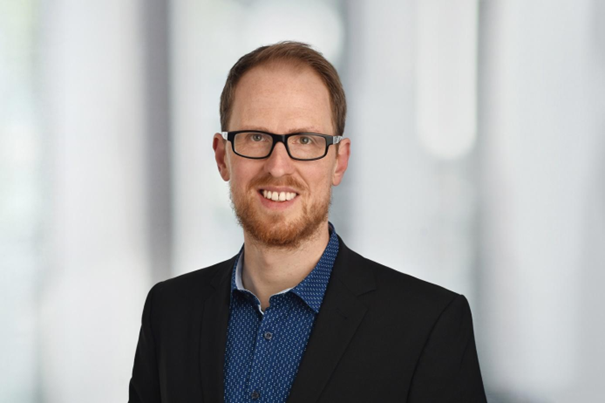 Felix Sühlmann-Faul
Felix Sühlmann-Faul 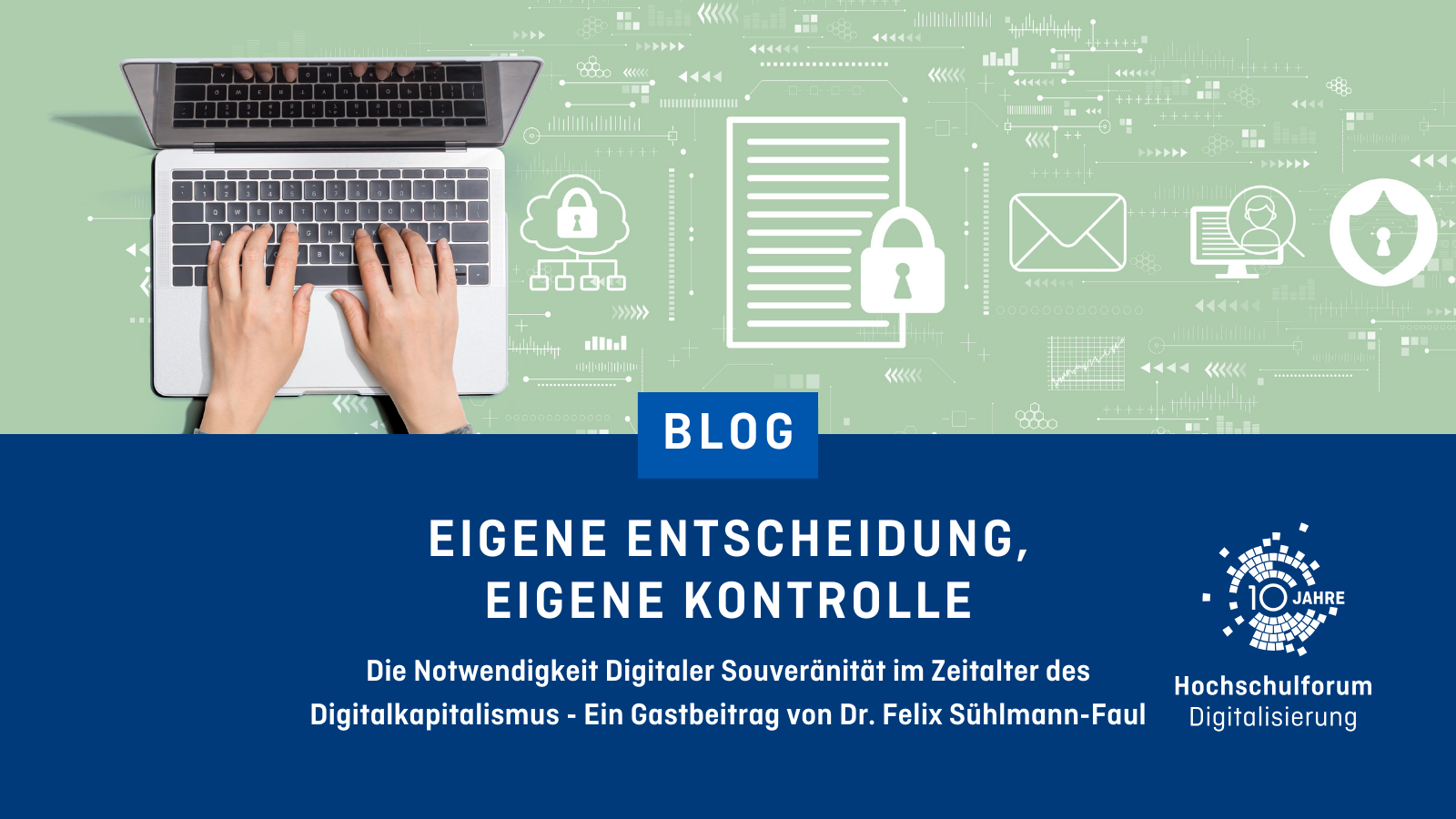
 Dr. Hans Pongratz
Dr. Hans Pongratz 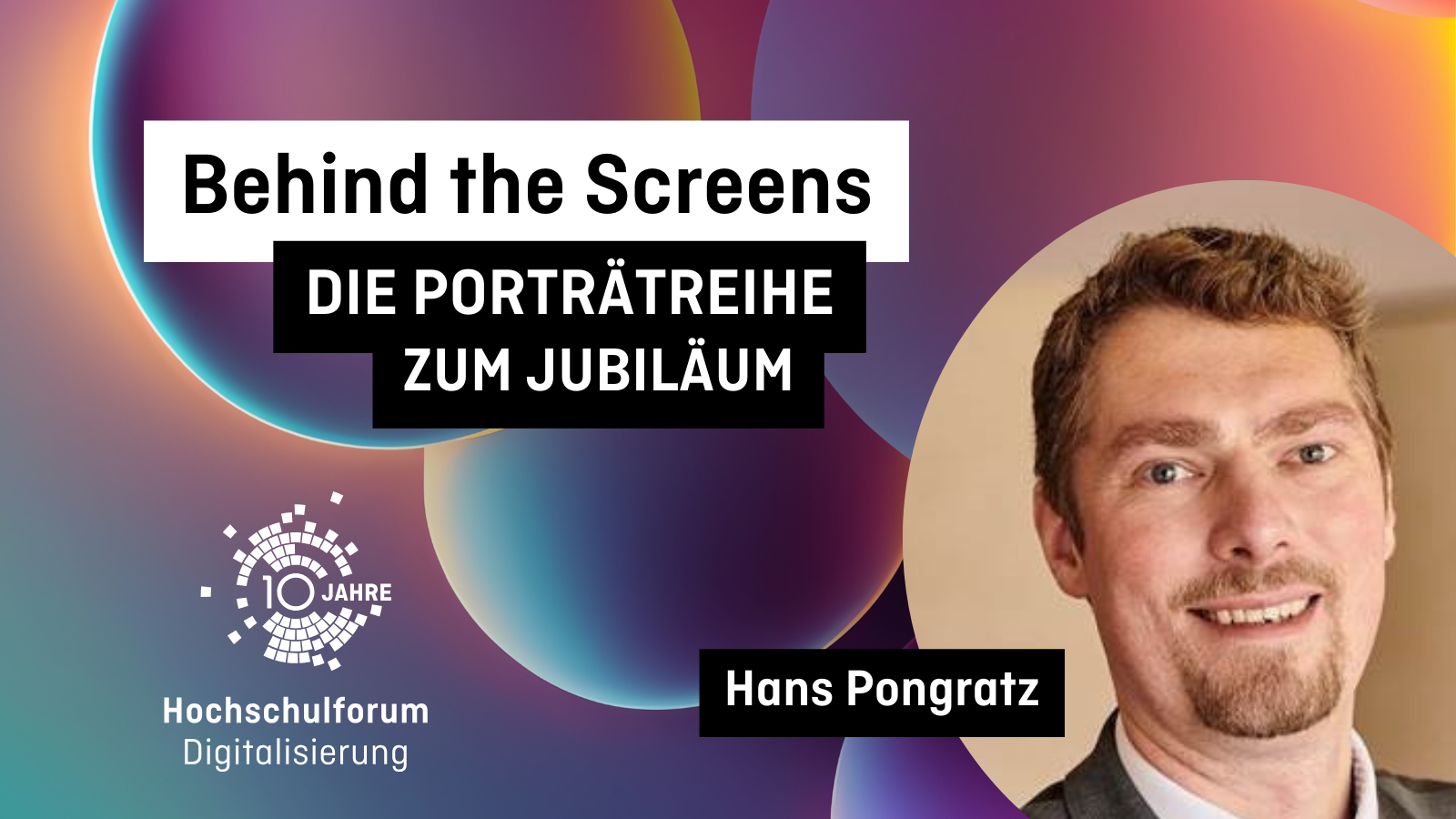
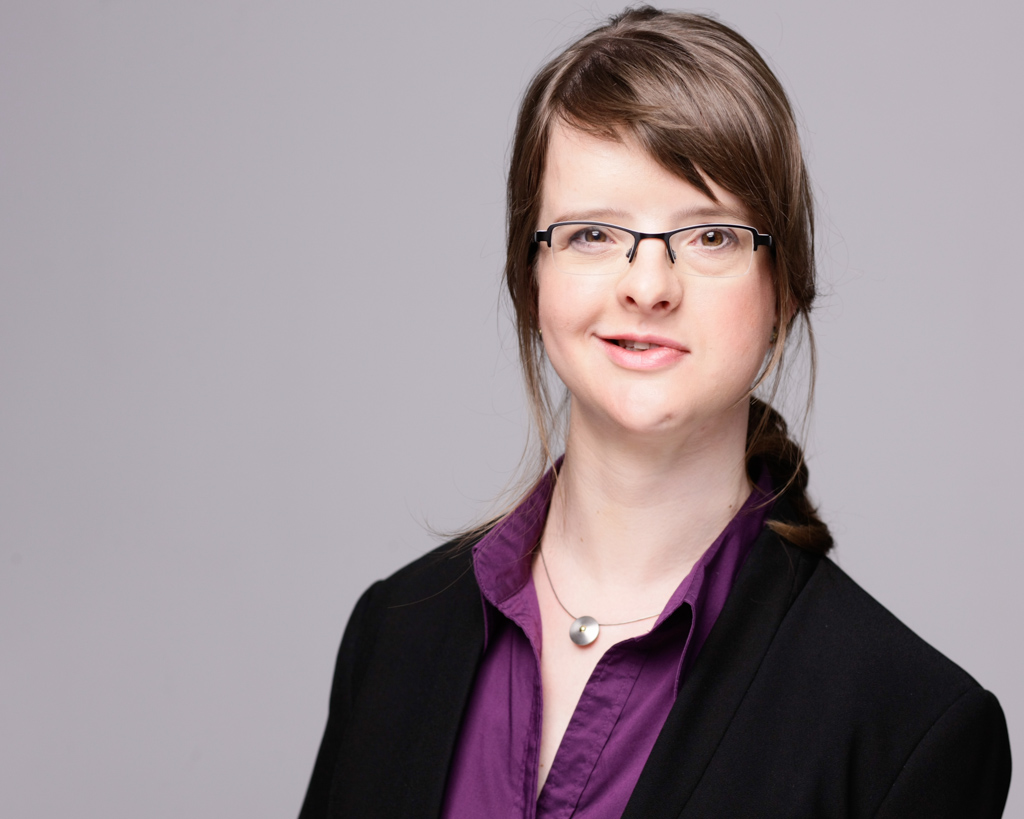 Dr. Klara Groß-Elixmann
Dr. Klara Groß-Elixmann 